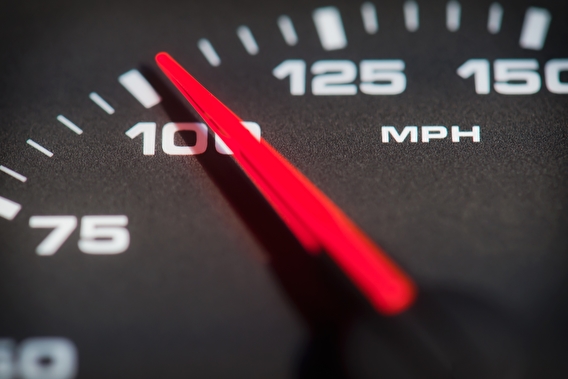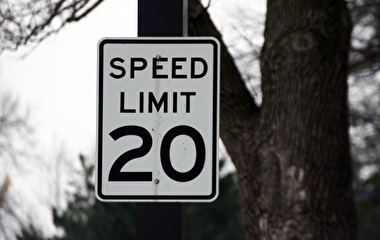
What’s next in transportation?
The Future of Mobility series collects the perspectives of top U researchers and other national experts. In 18 articles, the authors scan the horizon and reflect on critical transportation topics. Each article recommends action steps for public officials and policymakers.
CTS is highlighting the articles over the course of the year. This month, we explore safety and speeding in papers by Nichole Morris, director of the U of M HumanFIRST Laboratory, and Gregory H. Shill, professor in the University of Iowa College of Law.
Morris believes preventing drivers from speeding is the best path toward achieving safe and livable communities. In Deadly Speeding Epidemic Demands Urgent Intervention, she writes that officials and public agencies should support right-sized roadway designs that encourage drivers to travel at safe speeds. State lawmakers should allow communities to enact automated speed enforcement. And policymakers could take bold action by mandating speed governors. “Making it illegal for auto manufacturers to produce vehicles that can exceed 85 mph is a common-sense solution to reduce super speeding on our roadways,” she asserts.
Shill, in Transportation Safety in a Second-Best Environment, recommends “second-best” interventions to reach the best policy that can be achieved quickly. These changes stand a better chance of avoiding some of the policy bottlenecks that have bedeviled past interventions in practice. For example, “billions of bollards” could shield pedestrians in areas of high foot traffic; their installation should become standard. Interventions should leave the responsible majority alone and target the reckless minority. And we need to get more creative in cracking down on speeding, drunk driving, and drugged driving, Shill notes. One idea: When drivers pay their car registration, they “could also be required to buy a modestly priced bond that would be refunded to them the following year or rolled over if they had no violations for speeding or impaired driving,” he writes.
Writer: Pam Snopl


